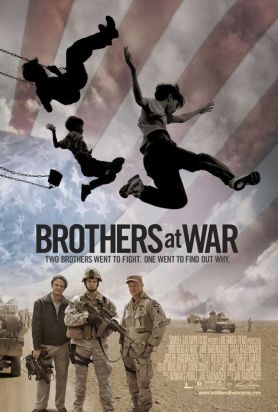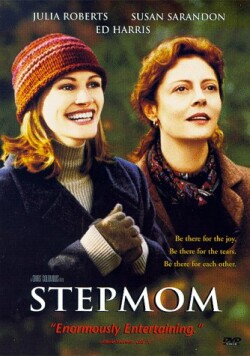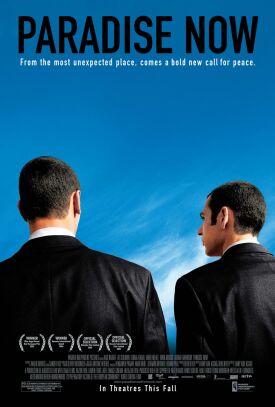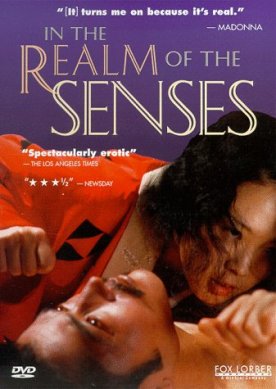Brothers at War
Writing in The Times of London, Ben Macintyre notices that “One of the more extraordinary aspects of the wars in Afghanistan and Iraq is the almost total absence of great names and great heroes to have emerged from the conflicts.” Actually, it’s not extraordinary at all but extremely ordinary, as you would have to put Vietnam and all the other American wars since then into the same category of herolessness, at least so far as the media are concerned. The reason is not far to seek, and it concerns the difficulty our post-honor society has in understanding what the men who fight in such places are doing there in the first place. If you think that war is madness, which our official culture pretty much does these days, it hardly makes sense to pick out a few of the lunatics and make heroes of them.
Victims are another matter, of course, and the victim-hero who is a major part of the popular cultural legacy of the Vietnam war is still going strong. Brothers at War, a documentary by Jake Rademacher mostly about his two younger brothers who are or have been soldiers in Iraq, doesn’t quite avoid the victim-hero syndrome, even though it is better in this respect than most movies about war that have made in the last 40 years. Yet the film’s very premiss seems to re-assert the official view of war-as-madness, since Mr Rademacher approaches his project like an anthropological expedition. “These guys were laying their lives on the line and I had to find out why,” he tells his own camera. So he sets out for the war zone himself in order to find out what could make men do such a crazy thing as volunteer for service in a war zone.
Well, once we didn’t have to ask. That was back in the days of Mr Macintyre’s “great names and great heroes.” What were those guys doing in their wars? Why, what else but becoming great names and great heroes? Wasn’t that reason enough? Men once thought they had something to prove by going to war. Jake Rademacher also has something to prove by going to war. He acknowledges as much near the end of the film when he says that some of his reasons in going were personal. “I wanted to see if I could do it, handle it,” he says, recalling that he, too, had “wanted to be a soldier when I was a kid.” And then he adds that, even after having gone on combat missions, though toting a camera rather than a rifle, “I don’t know if I deserved a place at the table with Joe,” his younger brother who did two tours in Iraq and was about to go back for a third. “But I walked a mile in my brother’s shoes.”
Here’s a sentence from a review of the film by Dan Zak in The Washington Post. “Jake rolls into Mosul and the first thing he says to Isaac is ‘I told you I’d [bleeping] make it,’ as if being in Iraq proves that he’s as much of a ‘man’ as his brothers.” Those quotation marks around “man” tell you all you need to know about the cultural presuppositions that Mr Rademacher is up against — and also the victim of — in this movie. Like Dan Zak’s, Jake Rademacher’s set of cultural presuppositions won’t allow him to assume that being brave has anything to do with being a man — though at some level he continues, as other men continue, to believe that it does. Otherwise he would not have gone to Iraq in the first place. But those anti-honor assumptions are what force him, in the mise-en-sc ne, to create the character for himself of the clueless detective trying to find out the very thing he already knows.
But then maybe that’s how he had to approach the subject to achieve any resonance with a civilian audience in today’s America. I’m just an ordinary, peace-loving guy like you, he is saying, in effect, so that’s why I’m trying to find why my crazy brothers are so crazy. You have to bear this in mind as you watch the scene where, on a Long Range Surveillance mission near the Syrian border, Jake asks some of the guys he’s with what they’re doing there. They must know that the question is not a real one. Every man, at some level of consciousness or unconsciousness, knows very well what they’re doing there, and Jake Rademacher is lucky he doesn’t get any more frivolous answer than, “When I figure out why I do it, I’ll let you know.”
To me, it’s obvious that those words, from a soldier named Ben Fischer, are what the British would call a wind-up: another way of saying the question is so stupid I’m going to pretend to be as dumb as you’re pretending to be and not answer it. It’s also another way of willingly accepting as a badge of honor the film’s implied description of the grunts in Iraq as madmen. There has long been a certain kind of honor for military men in being thought mad by civilians — or each other. It sets them apart just as bravery does, and it has an obvious relation to bravery. “Those guys are crazy,” often has an admiring subtext in military circles. It means they’re braver than the non-crazy guys. And being brave is still, as it has been throughout the ages, the bedrock foundation of honor. Jake ends up proving, at least to his own satisfaction, that he was brave enough to hang on to at least some limited degree of equality with his little brothers, though the degree to which this is an edifying spectacle for a movie audience is at least equally limited.
More interesting — though not much more interesting — are the parts of the film that return to the home front and allow us to see the effects of their deployments on Isaac’s wife Jennifer, who was also a West Pointer, and their child, and also on Joe’s fiancée Danelle, who is a weepy and emotionally fragile sort who seems scarcely able to stand up to the pressure of Joe’s third deployment. In this part of the film, however, we feel the author creeping back towards victimology, not least through the family’s discussion of another brother, Thad, who died — most likely of a drug overdose — in 2001. Thad is discussed by his surviving brothers almost as if he had been killed in action, and the warriors seem to sense some kind of vague connection between their brother’s death and their own decision to go to war. Jake feels it too when, in his summing up, he says of the brothers whose mysterious taste for danger and hardship he has been chronicling: “If we get to know them better, they can never be gone from us.” I don’t think it’s quite true, but it is a good note to end on.
Discover more from James Bowman
Subscribe to get the latest posts to your email.







